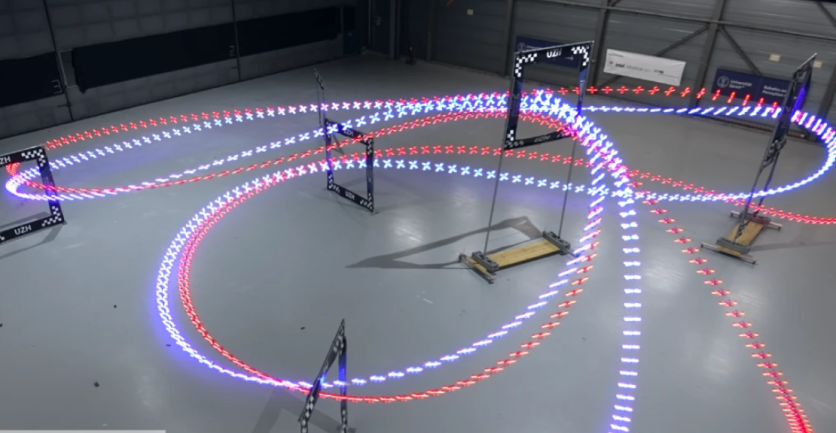It's not every day that we see an AI beating humans in almost all categories. From gaming to healthcare, the power of artificial intelligence is undeniably unsurpassable sometimes.
Swift AI, the creation of researchers from the University of Zurich, managed to beat real drone racers in the competition.
The AI showcased a flawless performance in the contest which was once dominated by humans.
Swift AI Beats Human Drone Racers

An AI has successfully beaten the human champions in a head-to-head competition involving drone racers. According to a report by The Guardian, the Swift AI pulled off 15 wins out of 25 races from its recent stint as a competitor.
The team of researchers at the University of Zurich says that the AI-controlled drones have reached 50mph, the fastest speed on the course.
"Our result marks the first time that a robot powered by AI has beaten a human champion in a real physical sport designed for and by humans," Swift researcher Elia Kaufmann said.
Related Article : AI Drone Kills Pilot in Simulation Test!
Swift AI Trained in a Simulated Setting
This drone race is unique since flying it is tricky from a first-person view. It's easier said than done since the racer must get past the obstacles without crashing.
Kaufmann and his co-researchers said that the Swift AI competed with actual professional drone racers Alex Vanover, Thomas Bitmatta, and Marvin Schapper.
According to Nature, the human contestants have practiced one week before the competition. They chose to train in the actual course. Meanwhile, the AI only underwent training in what seems to be a makeshift course.
The researchers said that by using deep reinforcement learning, Swift AI easily followed the commands that it needed to accomplish around the circuit.
During the training, the AI went through several errors before it managed to control the drones with no disruption. It was done via a trial-and-error method, as the researchers said.
The AI is not only responsible for taking control of the movement of the drones. It's also assigned to calculate the position of the aircraft, as well as their speed and orientation.
Based on the conclusion of the team, Swift excelled in its pace at the very beginning. It finished the fastest lap in just 17.47 seconds which is half a second faster than the fastest drone racer.
While it appears to be operating smoothly, the drone has crashed multiple times. It's also sensitive to the lighting.
According to Schapper, it feels really "different" to compete with a machine-controlled drone. He's aware that the machine never gets tired so that might grant it an upper hand over a human-operated drone.
With the experiment, the researchers might have discovered a new way to speed up delivery drones. It's fascinating to know that AI-powered drones can also be used for military purposes. This could be the key to using them for warfare.
Of course, the experts should first study its implication in the first place before deploying AI-controlled drones to remote areas.
Read Also : DeepMind Join Forces With Google Cloud to Create Watermarking Tool for AI-Generated Images

ⓒ 2025 TECHTIMES.com All rights reserved. Do not reproduce without permission.




